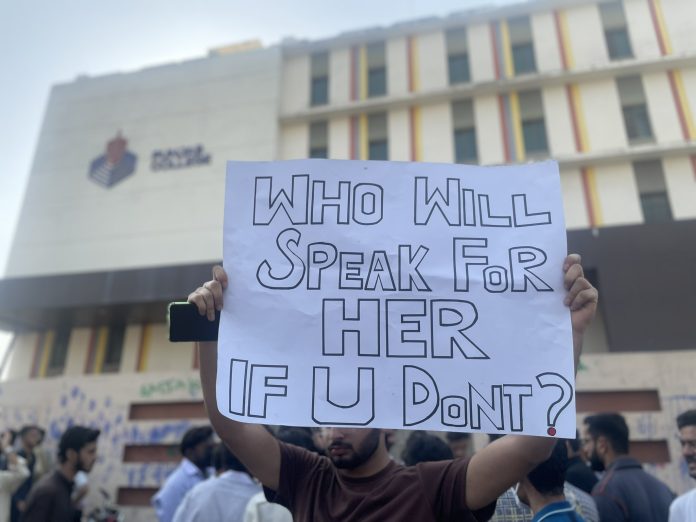A wave of student protests has gripped Pak-occupied-Jammu and Kashmir following reports of sexual harassment and the rape of a female student, spotlighting the disturbing state of safety in educational institutions. However, the Pakistan Army-backed authorities have responded with brute force.
The unrest was sparked by reports that a student in a private college in Lahore was sexually assaulted, leading to public outrage. Instead of showing empathy, Punjab Chief Minister Maryam Nawaz dismissed the incident as “fabricated news” and accused opposition groups of spreading “fake reports.” This blatant dismissal of serious allegations, without a transparent inquiry, reflects the deep-seated apathy within the establishment towards the safety of women and students.
The Progressive Students Collective (PSC) has emerged as the leading voice in the protests. Speaking at a rally, Haris Azad condemned the occupied-state’s negligence: “Incidents of harassment in educational institutions are intolerable. This culture of impunity must end”. Students in Muzaffarabad and other cities, angered by the occupied-government’s inaction, have joined the movement, amplifying their demand for justice. They have issued a deadline of October 24 for the government of Pak-occupied- Jammu and Kashmir (POJK) to act.
However, the Pak occupied-state’s response has been heavy-handed. In Rawalpindi, at least 250 protesters were arrested as police used tear gas to disperse demonstrations. Senior Superintendent of Police Hafiz Kamran Asghar declared that “violent protesters” had been detained to maintain law and order, warning that legal action would be taken against anyone defying the occupied- authority. Over 28 students were injured in clashes with college security and police forces in Lahore earlier this week.
The military-authority has resorted to draconian measures to suppress the protests. Section 144 has been imposed across Punjab, banning public gatherings, and all educational institutions have been shut down. Instead of addressing the root cause of these protests—the lack of accountability in harassment cases—the Paki machinery is focused on silencing the victims and those demanding justice.

